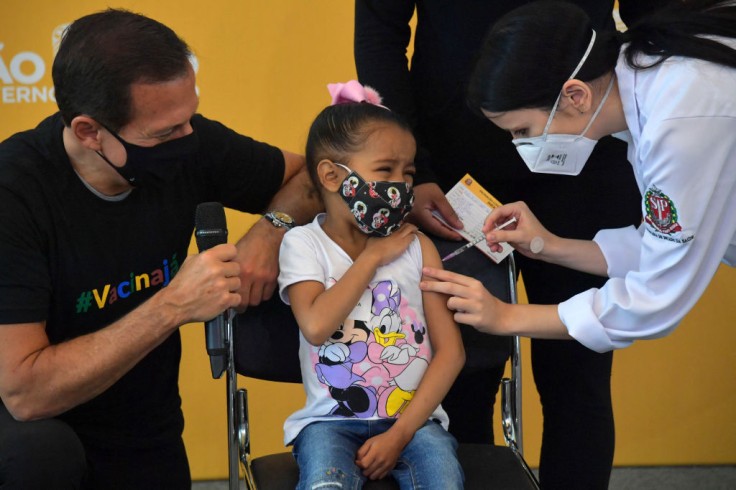
Children between the ages of five to 11 years old have been eligible for COVID-19 vaccines, specifically the Pfizer/BioNTech, as of November 2021 in the U.S., but some parents are still holding off on the vaccinations despite doctors and experts saying that they should do this as soon as possible.
A poll from the Kaiser Family Foundation cites that 84 percent of parents with children between the ages of five to 11 years old feel that "not enough is known about the long-term effects" of COVID-19 vaccines for children. Since the symptoms of infection are mild and almost non-existent in this age group, some parents wonder if kids still need to get vaccinated.
Why Vaccinate Kids Between 5-11 Years Old
However, according to the U.S. Centers for Disease Control and Prevention (CDC), children are still likely to get the infection and develop long-term health impacts from the virus. They could also easily carry and spread the infection to their classmates and vulnerable members of the community, such as their grandparents or parents with comorbidities. The best way to prevent the infection and spread is to get vaccinated.
The CDC also stated that over 8,300 children in this age group had been hospitalized for COVID, and nearly 100 died since the start of the pandemic in March 2020. COVID-19 now ranks as the top 10 cause of death in kids from five to 11 years old.
Additionally, over 2,300 multisystem inflammatory syndrome (MIS-C) cases have been recorded for young COVID-19 patients. Children with underlying medical conditions also tend to develop severe symptoms if they get the infection.
Thus, as with adults, the vaccines will protect the children from the virus by as much as 90 percent.
When children between five to 11 years old are vaccinated, they could also protect the rest of their family, who may still not be eligible for the jabs, such as those below four years old. The children may also continue with their in-person classes, playdates, sports activities, and other normal activities, which they should experience for their growth and development. This is only possible because the infection and transmission rates of COVID-19 go lower with the help of vaccines.
Monitoring Risks of COVID-19 Vaccine for 5-11 Years Old
But before recommending COVID-19 vaccines for kids in this age group, the CDC and the U.S. Food and Drug Administration (FDA) reviewed the Pfizer/BioNTech clinical trials and ascertained that these passed the safety and efficacy standards.
While rare, severe reaction against the vaccine is also regularly monitored through the Vaccine Adverse Event Reporting System (VAERS). Millions of healthcare experts worldwide access data from this site who alert and inform each other if there are concerning developments about the vaccines.
The Pfizer trials showed that none of the kids with underlying conditions had serious side effects from the vaccines. Children who develop common allergies to milk, eggs, or pollen also did not present severe reactions or anaphylaxis.
UC Davis expert Dean Blumber said that kids with underlying medical conditions are more at risk for having serious diseases in their vital organs and their immune system if they do not get vaccinated.
Meanwhile, parents should also note that the COVID-19 vaccines administered for young children are in lower doses than the ones injected for those above 12 years old. These are also properly labeled and color-coded to distinguish between the two doses.